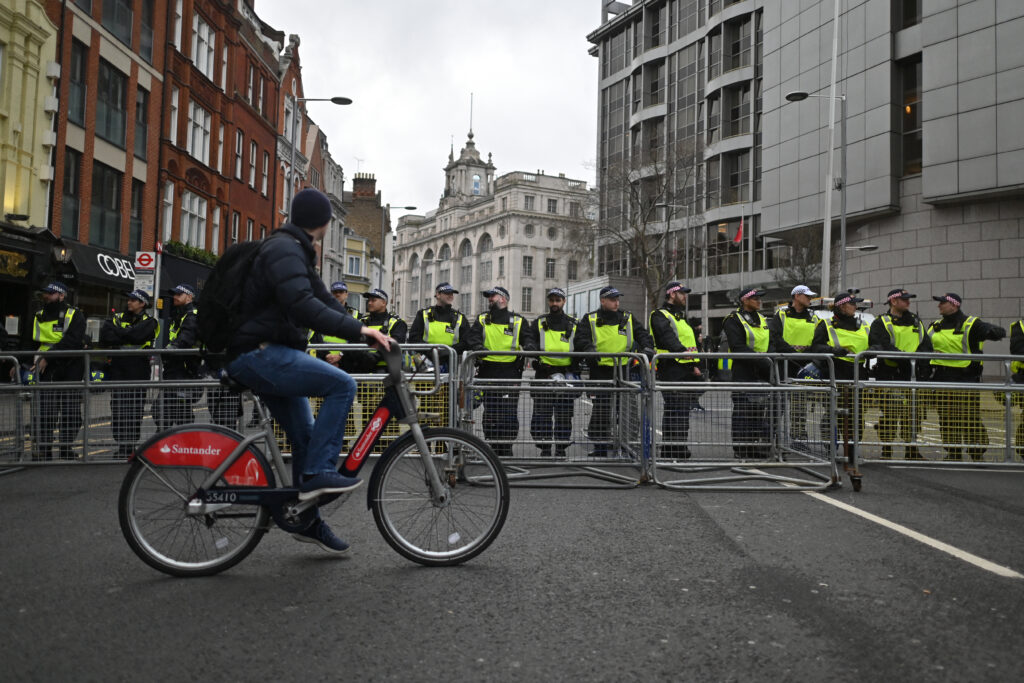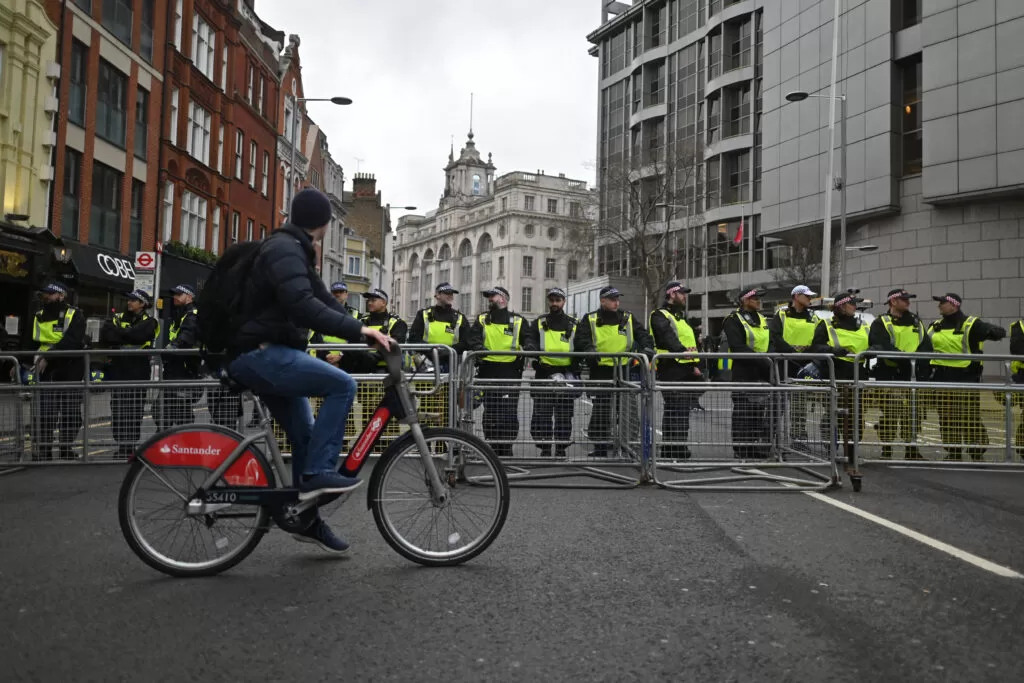In addition to events in the Middle East, MPs cite coordinated mass lobbying campaigns, the difficulty of confronting hate on social media, and environmental campaigners targeting politicians’ homes as reasons to be fearful.
Wednesday’s tense Commons vote came with the backdrop of hundreds of protesters gathered outside Parliament to peacefully demand a cease-fire in Gaza, with “cease-fire now” beamed onto the famous Elizabeth Tower, home of Big Ben.
The Palestine Solidarity Campaign, which helped organize the protest, said the issue of MP security “is serious but cannot be used to shield MPs from democratic accountability.” It said it does not support protests outside MPs’ homes, but warned against treating those coming to “peacefully lobby their MPs on the issue of Palestinian rights” as a “security threat.”

Philip Cowley, professor of politics at Queen Mary, University of London said MPs’ increased exposure is partly related to their “increased visibility and ease with which threats can be made, as well as weaponization of MPs’ voting records even on what would previously be seen as relatively low-stakes debates.”
One female Labour MP argued there is now more awareness of abuse because men are increasingly encountering some of the nastiness long experienced by women in Parliament. “Suddenly it’s not a gender issue, it’s a democracy one,” she said.
Labour MP Dawn Butler, who closed her offices in 2020 after receiving racist abuse, acknowledges that the political discourse in Westminster at the moment “is quite combative and volatile, possibly even toxic at times. We have to keep ourselves safe. And the country has to keep their politicians safe, that’s important for our democracy.”
